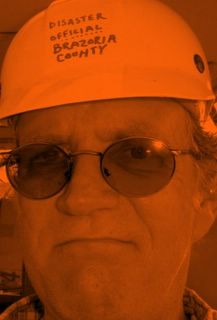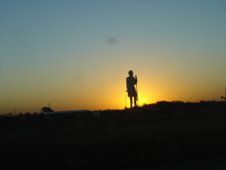The Great Carsoni
 In our house, Johnny Carson was a staple. I watched him from a very young age. I remember seeing Don Rickles for the first time on Johnny's show. What a revelation. Never seen a comedian like that.
In our house, Johnny Carson was a staple. I watched him from a very young age. I remember seeing Don Rickles for the first time on Johnny's show. What a revelation. Never seen a comedian like that.
In Baytown, where I great up, Carson's bandleader, Doc Severinsen, for many years made an annual trip to spend several days with members of the Lee High School Band. Then he'd perform a concert with them in the high school auditorium, always a big event in the refinery town 30 miles east of Houston.
I read a biography of Jerry Seinfeld a few months ago and just flipped through it again to find references to Carson and The Tonight Show. Performing on Carson's show was always a milestone for a comedian trying to make his mark, but Seinfeld put off invitations to appear until he was sure he had enough material for several strong appearances. When his first appearance was scheduled, Seinfeld's dad made sure everyone at home knew about it. Kal Seinfeld took out an ad in the Massaqequa Post.
From "Seinfeld: The Making of an American Icon" by Jerry Oppenheimer:
On the scheduled night, he went around town with a bullhorn, like some crazed Jewish Paul Revere, rousing the citizenry to turn on their TV sets at 11:30 p.m. "He went up and down the streets -- `Watch Jerry Seinfeld tonight, Johnny Carson, NBC,'" recalled Rabbi Spielman.
Here are excerpts from some of the papers today.
NY Times:
After earning his bachelor's degree in 1949 (after three years) he got another radio job, at WOW in Omaha, for which he was supposed to do interviews.
In those days, national celebrities made tapes available to local radio stations in which the celebrity's writers would prepare questions for local interviewers, with the prerecorded answers given by the celebrities. But when Mr. Carson was assigned to "interview" the singer Patti Page, he changed the questions considerably. He was supposed to ask her when she started singing but instead asked, "I understand you're hitting the bottle pretty good, Patti - when did you start?" To which Miss Page's prerecorded voice replied, "When I was 6, I used to get up at church socials and do it."
Washington Post:
Intermittently, Carson fought NBC for higher wages, staging a walkout in 1967. He also forced the network to reduce its 90-minute format to an hour in 1980 and relied increasingly on guest hosts.
His acrimony toward his employers crept into his humor.
In the mid-1980s, he let NBC's new owner, General Electric, know where it stood in his estimation. One Christmas, he joked that a holiday card had arrived from the company: "In lieu of a gift, a GE employee has been laid off in your name."
When an audience member asked why the NBC logo is a peacock, Carson said: "I don't know. I guess they couldn't find a multicolored weasel."
Tom Shales, Washington Post:
Carson turned down all entreaties -- and there were dozens -- to come out of retirement for one show, one little sketch, one brief appearance. Except for a tiny appearance on Letterman's CBS show, Carson stayed away. During a 1993 interview, he revealed one of the main reasons for remaining out of the public eye: Bob Hope. Carson thought Hope seemed sad continuing to make appearances on television, even if only to stand up and wave, as he waded further and further into his nineties and grew increasingly infirm. Carson did not want to look pathetic, nor come across as someone who refused to leave the stage even though the hour had clearly come.
The tabloids occasionally printed sneaky photographs of Carson on his boat or walking in Malibu and appearing to be less trim and buoyant than he always was on "The Tonight Show." But for the most part, the prevailing image that Carson left us was of a man still full of vitality, mischief, irreverence and incomparable charm -- a man who still seemed boyish even as he crossed the boundary into his seventies.
LA Times:
"Next to Milton Berle and Lucille Ball, he's had the single greatest influence on the content of television," said Jeffrey Cole, director of the UCLA Center for Communication Policy. "He really created the monologue and turned it into a cultural barometer of political and social events. Many people got their take on what was acceptable from the monologue."
Carson himself said in a 1986 interview, "I knew from the monologue the very night that Spiro Agnew was suddenly in deep trouble," referring to Nixon's former vice president, who was forced to resign in a financial scandal not related to Watergate. "From a one-line observation I can get a response, a reaction … that may be the best indicator of how [someone] is perceived in this country."














No comments:
Post a Comment